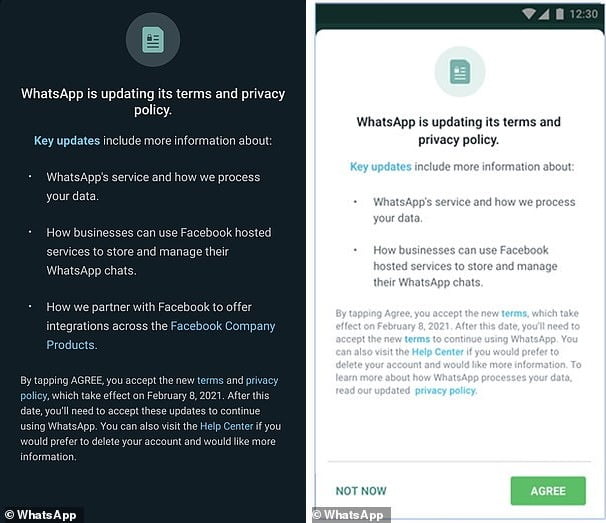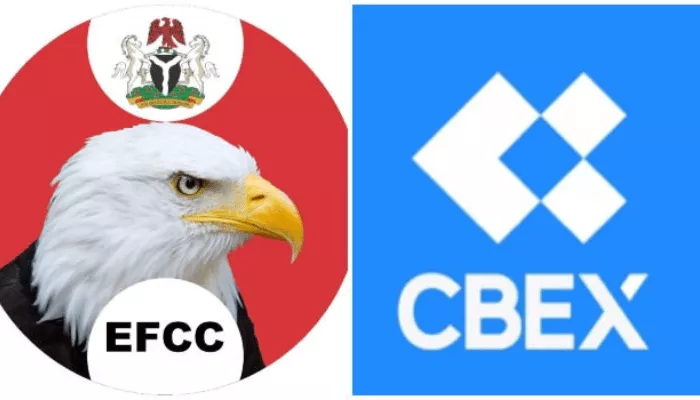WhatsApp is in the middle of a storm after its new privacy policy update, which suggests further data sharing with its parent company Facebook. Users have to accept the terms and service of this new policy or delete their accounts. This change in privacy policy has also sparked an outflow of sorts to apps like Signal and Telegram.
Millions of WhatsApp users have taken the drastic step of abandoning the app ahead of a privacy policy update that will force them to share their data with Facebook.
The update, which will be released on February 8th, 2021 affects WhatsApp users in all countries outside of Europe and the UK, where there are strict data protection laws.
Users in these regions will be required to give their consent for Facebook to access their data, including their phone numbers and information about how they interact with others, in order to continue using the app.
Contents
What Does The Change Mean For You?
From February 8, WhatsApp will start sharing user data with its parent company, Facebook.
While WhatsApp will start sharing data with Facebook, it’s important to note that WhatsApp is encrypted by default, meaning Facebook will not be able to see the contents of your messages.
However, it will be able to see the numbers in your contact list, as well as how often you interact with them.
If you use WhatsApp you should have received a notification, explaining the changes.
The notification outlines the new data-sharing feature and urges you to ‘Agree’ with the conditions.
The requirement will apply regardless of whether or not the WhatsApp user has a Facebook account.
The news has led many people to jump ship to rival apps, according to data from Sensor Tower.
When the privacy policy changes were announced on January 7, Telegram picked up nearly 1.7 million downloads and Signal gained 1.2 million downloads, while WhatsApp, which usually dominates, gained just 1.3 million downloads.
WhatsApp installations also fell approximately 13 percent to 10.3 million downloads in the first seven days of January, compared to the 7 days prior.
WhatsApp first alerted users to the new privacy policy changes in a notification last week.
The privacy policy explains:
‘As part of the Facebook Companies, WhatsApp receives information from, and share information with, the other Facebook Companies.
‘We may use the information we receive from them, and they may use the information we share with them, to help operate, provide, improve, understand, customise, support, and market our Services and their offerings, including the Facebook Company Products.’
Essentially, this means Facebook will now be able to access account information, including your phone number, information on how you interact with other users, and logs of how often and how long you use WhatsApp.
Other data that could be shared with Facebook includes your IP address, browser details, language, and time zone.
WhatsApp was acquired by Facebook in 2014 and has shared data with its parent company since 2016.
WhatsApp offered a one-time opt-out for data sharing in 2016, but now users are being forced to agree to the privacy policy to continue using the app.
Many angry WhatsApp users have taken to Twitter to announce their departure from the app, in light of the new privacy policy.
According to App Annie, WhatsApp’s ranking in both the UK and the US has fallen following the news.
In the US, WhatsApp is now ranked number 38 in the download charts, while it is number 10 in the UK – significantly lower than normal.
In contrast, both Telegram and Signal have risen up the ranks, and are now numbered 13 and one in the UK download charts, respectively.
Jake Moore, Cybersecurity Specialist at ESET said it was no surprise that many users were deleting WhatsApp following the privacy policy update.
‘Being told that the app is unavailable unless you agree may not always be the best way as people then feel forced to giving away their data,’ he said.
‘We may even see people move away from these apps to more privacy-focused apps which more delicately protect our data.
‘It is incredibly important that users do all they can to protect their private information, and they must realize how damaging it can be if it gets into the wrong hands.’
WhatsApp has confirmed that users in the UK and Europe will not have their data shared with Facebook.
‘For the avoidance of any doubt, it is still the case that WhatsApp does not share European region WhatsApp user data with Facebook for the purpose of Facebook using this data to improve its products or advertisements.’
The privacy policy changes will mainly affect the way businesses can communicate with customers on WhatsApp.
Best WhatsApp Alternatives
If you’re considering deleting WhatsApp, you’ll be happy to hear that there are several alternative apps to choose from:
1. Telegram
With more than 400 million users, Telegram is one of the most popular WhatsApp alternatives.
While it looks very similar to WhatsApp, what sets it apart is the fact that it offers even more security.
Messages are end-to-end encrypted, but users also have the option to set messages to self-destruct after a given period of time, leaving no trace.
2. Signal
Signal is one of the most secure messaging apps, thanks to the fact that it is open-source.
This means that the code for the app is publicly available to view, making it near-impossible for the app’s creators to sneak in any backdoors that could allow governments or hackers to spy on your messages.
3. iMessage
If you use an iPhone, you may consider simply switching to iMessage, Apple’s own messaging app.
The app has a number of impressive features included no character limits, the ability to send pictures and videos, and of course Apple’s animated emoji feature, Animoji.
Unfortunately, iMessage is only available for iPhone users, so you’ll struggle to interact with anyone using an Android.
4. Google Messages
Google’s answer to iMessage is Google Messages, an Android-only messaging service.
The app replaces your standard SMS app, and integrates with all of Google’s apps and services, making it easy to share images or use Google Assistant.
5. Facebook Messenger
If you were put off using WhatsApp due to its sharing of data with Facebook, Facebook Messenger may not be the best option for you.
However, the app offers a number of helpful features, including games, secret conversations, and video calls.
Therefore, have you abandoned WhatsApp for something else?
Feel free to tell us your suggestion, if you have any messaging app that might help fellow readers.












